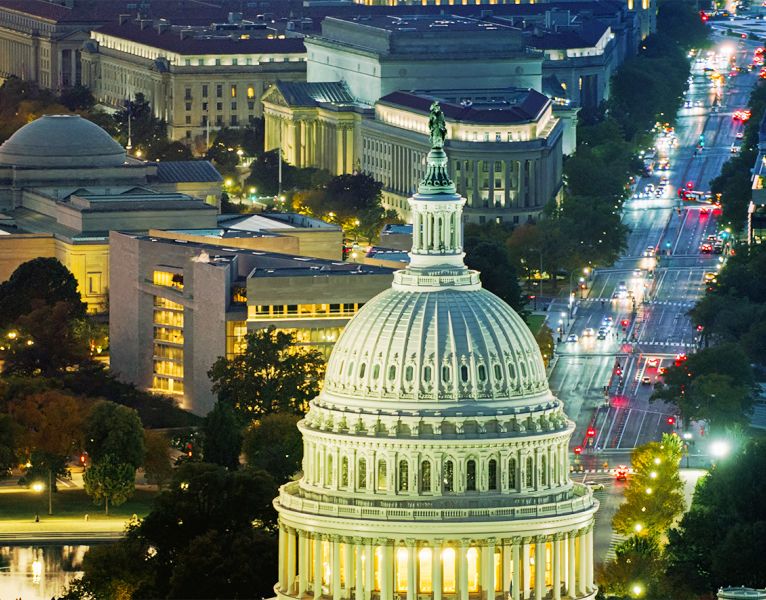This article is part of a monthly column that considers the significance of recent Federal Trade Commission announcements about antitrust issues. In this installment, we discuss what the election means for the FTC's focus on labor markets.
Under Chair Lina Khan, the Federal Trade Commission elevated its focus on labor markets. It promulgated a rule attempting to ban noncompete agreements, now stayed and subject to litigation. It took action against alleged wage-fixing agreements, and used the merger review process to scrutinize labor practices, now enshrined in the agencies' new merger guidelines.
While the winds of politics change, labor market issues are unlikely to completely disappear from the antitrust lexicon. It was under the first Trump administration, after all, that the U.S. Department of Justice made its first attempts to prosecute no-poach agreements.
After its string of defeats in such cases, however, there may not be as much enthusiasm to try again. But it is not just the ability to prove a no-poach case that is embattled.
The administrative state itself, and the FTC in particular, has found itself under attack. And those cases — some resolved and some pending — show how changes to administrative law could seriously slow down the agency's actions.
Cracks in the Administrative State's Foundations
Two major administrative law cases from the last U.S. Supreme Court term are already affecting some of the FTC's labor market efforts.
The Supreme Court's June 28 decision in Loper Bight Enterprises v. Raimondo overruled the Chevron deference that agencies had enjoyed for over three decades. And a day earlier, in U.S. Securities and Exchange Commission v. Jarkesy, the court held that when the SEC seeks civil penalties against a defendant for securities fraud, the defendant is entitled to a jury trial.
It also left undisturbed the U.S. Court of Appeals for the Fifth Circuit's ruling that the SEC's administrative law judges violated the Constitution. While these do not directly affect the FTC, they lay the groundwork for increasing challenges to its power, including its new noncompete rules and its own administrative court.
Looking ahead, the U.S. Court of Appeals for the Ninth Circuit recently heard oral argument in United States v. Pheasant, which may be the next case to transform administrative law. The case involves a dispute about riding a dirt bike at night without a taillight in violation of a Bureau of Land Management rule.
There, the claim is that Congress unconstitutionally delegated its legislative authority to the executive branch, and that crimes created by the Bureau of Land Management are void.
Direct Attacks on the FTC's Administrative Court
The FTC is waiting for a U.S. District Court for the District of Oregon judge's ruling on its effort to block the merger of Kroger and Albertsons, two of the largest grocery retailers. In addition to alleging higher prices to consumers, the FTC has asserted that the proposed merger could lessen demand for labor, and specifically, union labor. Kroger and Albertsons together employ more than 700,000 workers.
Most of those workers are members of one of two major unions, both of which have called for the FTC to block the merger on the grounds that it would eliminate their ability to play one company against the other. This is a novel theory for merger enforcement.
While the FTC is seeking a preliminary injunction in Oregon, which will likely decide the case, it is also seeking permanent remedies in its own administrative court. A week before the trial began in Oregon, Kroger — which argues the merger would actually reduce grocery costs — flipped the playbook and went on the attack.
It sued the FTC in Ohio federal court, arguing the agency's in-house adjudication process violates the constitutional separation of powers. Kroger argues that the FTC lacks power to bring a merger challenge in the administrative courts because its judges are not removable by the president.
This is not the first challenge to the FTC's constitutionality, but if the deal is not blocked in Oregon and the FTC continues in its own court, it may significantly affect the agency's enforcement of antitrust laws. While Kroger cited Jarkesy, there are differences between the two cases.
Unlike the claims in Jarkesy, which paralleled common law fraud where the right to a jury traditionally applies, the FTC's antitrust claims have no obvious common law analogs. But if Kroger succeeds in expanding Jarkesy to the FTC, it would be a significant blow to the FTC's regulatory powers.
The Future of the FTC's Noncompete Ban
Earlier this year, the FTC passed a rule that would, with few exceptions, ban noncompete agreements for all workers, including senior executives, and limit the effects of existing agreements. It would have fundamentally changed a practice that, according to the FTC, affects one in five workers and is ubiquitous in many industries, from healthcare to manufacturing to tech. The ban was slated to go into effect on Sept. 4.
But in the Aug. 20 decision in Ryan LLC v. FTC, Judge Ada Brown of the U.S. District Court for Northern District of Texas found that the ban exceeded the FTC's legal authority.
While the FTC did not argue for Chevron deference, the district court cited Loper Bright, holding that "the FTC lacks substantive rulemaking authority with respect to unfair methods of competition, under Section 6(g)." While the commission has asked the Fifth Circuit to review that ruling, a regime change could mean the appeal will be dropped.
Other challenges to the ban meanwhile are proceeding in other circuits, raising nondelegation questions — that the ban represents an unconstitutional delegation of legislative authority to grant the FTC rulemaking authority to define "unfair methods of competition."
Striking down a rule on nondelegation grounds would be monumental: The Supreme Court has not found a grant of rulemaking authority to violate the nondelegation doctrine in nearly a century. But whether in this case or another, the court has already signaled it is willing to take up the nondelegation question.
As Justice Clarence Thomas observed last term, "[a]t least five Justices have already expressed an interest in reconsidering the Court's approach to Congress's delegations of legislative power."[1]
What to Look for in the Future of Labor Practices Under the FTC
Increased Judicial Scrutiny
While it remains to be seen whether the FTC will prevail in its merger challenge, the ruling against the FTC in the noncompete case exemplifies the increased judicial scrutiny the agency faces going forward. Until there is a definitive ruling on these constitutional issues — and perhaps after, if the tides go against the FTC — constitutional challenges are firmly a tactic in a litigator's playbook to turn the tables on FTC action and go on the attack.
Regulatory Uncertainty
The election, and uncertainty about the future of the FTC's noncompete rule as well as its labor-related rulemaking powers more broadly, could discourage the agency from pursuing aggressive enforcement of the noncompete rule and from future labor-related rules. Interest in labor markets will not go away, but they may take a back seat to more traditional antitrust concerns over the next four years.
Unlikely Legislative Action
Given the judicial pushback, and the specter of the nondelegation doctrine, there may be calls for Congress to clarify the statutory authority of the FTC regarding noncompete agreements, potentially leading to new legislation. The election, however, makes any such legislation in the FTC's favor very unlikely.
[1] https://www.supremecourt.gov/opinions/23pdf/23-819_m648.pdf.
Reproduced with permission. Originally published November 21, 2024, "FTC Focus: Zeroing In On Post-Election Labor Markets,” Law360.


